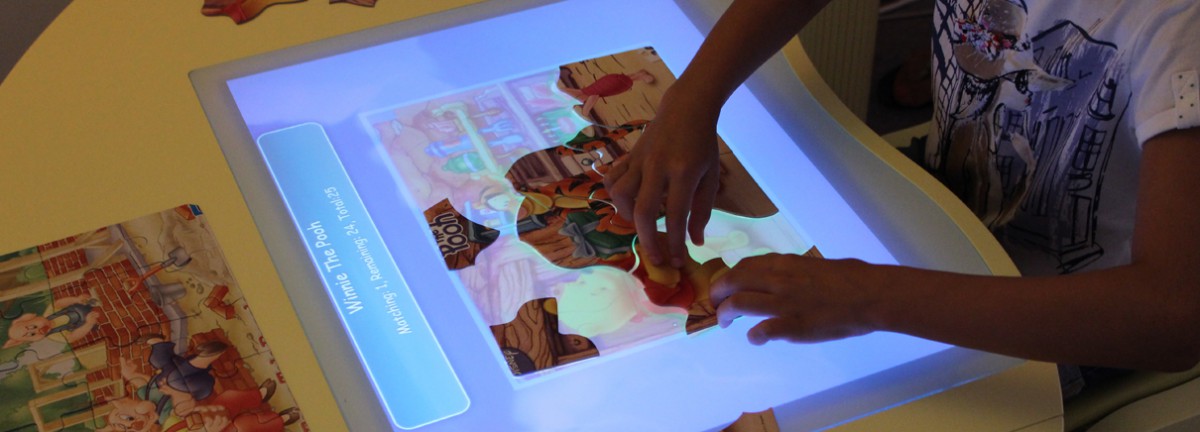
Beantable is an augmented interactive table supporting young children’s development through the monitored use of smart games
Beantable is an augmented interactive table for children in the age-range of 2 to 7. The purpose of Beantable is to support children’s development through the monitored use of appropriate smart games in an unobtrusive manner. Beantable monitors the children’s interactions and extracts indications of the achieved maturity level and skills by taking into account:
Furthermore, Beantable can act as a diagnostic tool that provides educators and child development experts with extensive data (extracted from the interaction history) that can be used for reasoning about whether the child is meeting all the necessary developmental milestones.
The table, which has been custom made, is a wooden prototype designed and built to be robust and transferrable. The height of the Beantable can be adjusted accordingly to fit children’s’ needs as they grow. All the devices required for the operation of the AmI applications are embedded inside its construction in a way that is invisible to the eye. A main display device is located on the top side of the actual table, and it is enabled with multi-touch and force-pressure sensitive capabilities. The table screen is able to recognize the location and the rotation of physical objects on the top, provided that each physical object carries at least one fiducial marker at its bottom. Games involving physical objects, such as puzzles, were selected as a testing domain. Two jigsaw puzzles (“Winnie the Pooh” and “The Three Little Pigs”), as well as a classic memory game (Pick & Match), were developed and tested with young children.